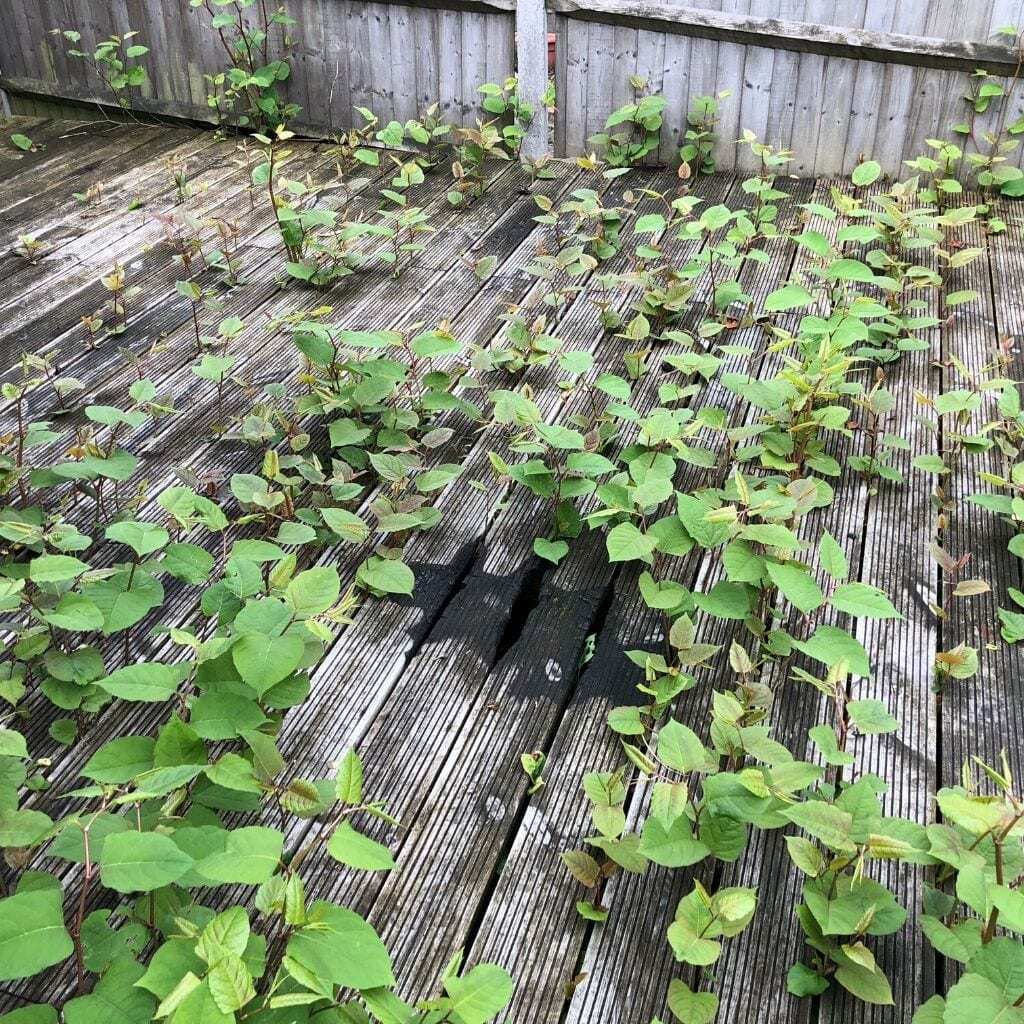
During the spring and summer months, Japanese knotweed has been reported to grow as quickly as 10cm a day. However, there is no research to support how fast it spreads underneath the ground.
Japanese Knotweed has an extensive underground rhizome system that can spread up to 7 metres horizontally and 3 metres deep. The spread of Japanese knotweed can be increased by the breakage or disturbance of the ground and the spreading of the plant to new areas of the garden or site. Due to this extensive underground growth, it can be a difficult job removing Japanese Knotweed Remove: (and a costly one to be exact).
Japanese Knotweed infested soil cannot be disposed of in general waste, Japanese Knotweed material needs to be taken to a licensed landfill using certified haulage vehicles.
How Japanese Knotweed Causes Damage
Japanese Knotweed is a self-propagating plant, meaning that it spreads and grows from fragments of the plant itself. This makes the control of the plant very difficult, especially when homeowners and neighbours have been cutting it back without realising, accidentally spreading the Knotweed in the process.
Japanese Knotweed thrives in non-restricted areas and open areas such as fields, rivers and railways if the plant is not being disturbed. Allowing it to spread rapidly and outgrow other plant species. Japanese Knotweed affects ecosystems by crowding out native vegetation and limiting plant and animal species diversity. It also has the potential to affect water quality and has an impending flood risk. Aquatic organisms are less able to process knotweed leaf litter compared with the native vegetation it displaces and this has the potential to alter food chains.
Japanese knotweed has a vast underground rhizome system that can spread and grow rapidly, blocking drains, cracking tarmac and damaging foundations. The plant can grow through thin cracks in walls and slabs, causing the wall to collapse due the friction and movement of the plant.
For any queries on the above or if you would like a free identification of a potential Japanese Knotweed plant, please contact us at info@cyb-environmental.com

